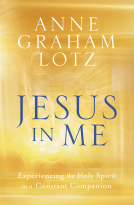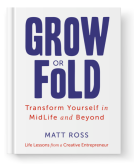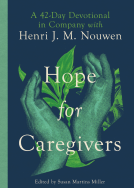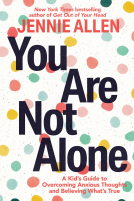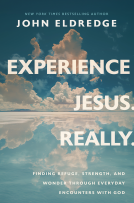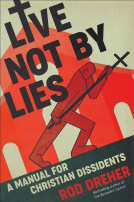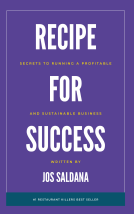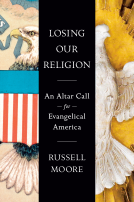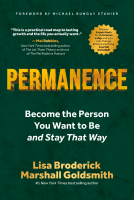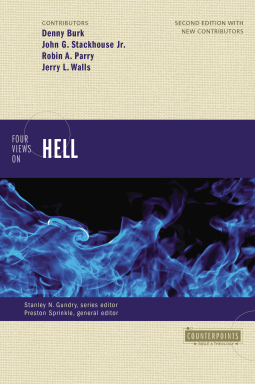
Four Views on Hell
Second Edition
by Preston Sprinkle, General Editor
This title was previously available on NetGalley and is now archived.
Send NetGalley books directly to your Kindle or Kindle app
1
To read on a Kindle or Kindle app, please add kindle@netgalley.com as an approved email address to receive files in your Amazon account. Click here for step-by-step instructions.
2
Also find your Kindle email address within your Amazon account, and enter it here.
Pub Date Mar 08 2016 | Archive Date Aug 22 2017
Zondervan Academic | Zondervan
Description
Recent years have seen much controversy regarding hell: Do we go to heaven or hell when we die? Or do we cease to exist? Are believers and unbelievers ultimately saved in the end?
This second edition of Four Views on Hell, featuring all new contributors, highlights why the church still needs to wrestle with the doctrine of hell. In the familiar counterpoints format, four leading scholars introduce us to the current views on eternal judgment, with particular attention being given to the new voices that have entered the debate.
Contributors and views include:
Denny Burk: Eternal Conscious Torment John Stackhouse: Annihilationism (Conditional Immortality) Robin Parry: Universalism (Ultimate Reconciliation) Jerry Walls: PurgatoryGeneral editor Preston Sprinkle concludes the discussion by evaluating each view, noting significant points of exchange between the essayists. The interactive nature of the volume allows the reader to reflect on the strengths and weaknesses of each view and come to an informed conclusion.
Available Editions
| EDITION | Paperback |
| ISBN | 9780310516460 |
| PRICE | $18.99 (USD) |
Average rating from 12 members
Featured Reviews
 Conrade Y, Reviewer
Conrade Y, Reviewer
The topic of hell and eternal damnation has been a controversial topic recently. Since Rob Bell's Love Wins, which is essentially a book that not only rejects the existence of eternal hell but advocates the position of universalism, many Christians are caught in a bind about what exactly does the Bible teach about hell. A number of outspoke critics railed against Bell. A popular Christian pastor, Francis Chan was so upset about Bell's universalist approach that he responded with Erasing Hell. The chief editor of ChristianityToday publication wrote God Wins to counter Bell's ideas. While these books appeal at a popular readers' level, there are some people who would like a more in-depth treatment of the topic of hell, damnation, and eternal suffering. Enters this book which is part of Zondervan's Counterpoints series. Four different perspectives are provided not simply for readers to pick-and-choose but to be understood and to learn from. If not everybody have the whole truth, surely, together, we can all draw a bigger picture that we can learn from. Each view comes with three responses. The main purpose of this book is to lay out the different views of hell for the purpose of instruction and illumination, so that there will be bridges of understanding of all sides. This book is not new. The first edition was published in 1996 with the literal view (John F. Walvoord), the metaphorical view (William Crockett), the conditional view (Clark H. Pinnock), and the purgatorial view (Zachary J. Hayes). This second edition has been updated with four new contributors.
Although some of the terms have been changed, and the contributors different, the general thrust of each argument remains the same. Denny Burk, Professor of Biblical Studies at Boyce College argues from a traditional literal position. John Stackhouse Jr, the Samuel J. Mikolaski Professor of Religious Studies at Crandall University in New Brunswick, Canada, argues from the conditional immortality viewpoint. Robin Parry, editor at Wipf and Stock publishers argues for Universalism, while Jerry Walls, Professor of Philosophy at Houston Baptist University maintains a stand on purgatory. I will summarize each view before adding some comments to it.
The first view of hell sees the place of damnation literally as "Eternal Conscious Torment." Denny Burk uses ten specific Scripture passages to expand on this view. He has high view of the Bible and God. Sometimes referred to as the traditional or fundamental view, Burk tells us that our views of human beings must not diminish the holiness of God and the seriousness of sin. When the Bible clashes with the worldview of man, the latter must surrender to the former. There is a strong teaching on "final separation" and "just retribution." With the reality of hell made clear, the implication for believers is to share the gospel widely and urgently. The key problem with Burk's arguments lies in the ten Bible passages he has selected. Not all of them speak into the topic of hell with equal weight. They all have their contexts to be studied first. Stackhouse counters by saying that Burk emphasizes on God's greatness more than God's goodness. Plus, Burk's arguments are more deductive than inductive. Parry jumps in to question how it is possible for the saints to be "fully happy" if those they love are suffering in eternal torment. He agrees that while God is infinitely glorious, it is not necessary that God is inflicts eternal punishment. Walls sits in between, refusing to acknowledge either "conditional immortality" or "universalism." He questions Burks' view of grace and human freedom.
The second view of hell is proposed by John G. Stackhouse Jr, one that the author calls "Terminal Punishment" or Annihilationism. He sees God as both holy and good. Hell is about people who reject the atonement of Jesus and thus suffer from the consequences of their own choices. Hell is depicted as a destination, as fire, and as dump. As a destination, hell is seen as a real literal place. As fire, hell is judgment. As dump, hell is a place where evil is assigned to. His essay aims to walk the fine balance between God's holiness and God's judgment for sin. God judges because God loves. Burk replies by saying that Stackhouse's two extremes of God's holiness and God's love are "unbiblical extremes." Why not put them together as one? Parry refuses to accept the idea of "eschatological destruction." He insists that the Bible is more about "gospel solution" and not about "terminator solution." He sees hell as more imagery. Walls chooses not to go either way and says that hell is not "eternal punishment" but eternal rejection by people.
The third view of hell is the universalist view advocated by Robin Parry. Simply put, this view believes that a loving God will ultimately reconcile every person to Him. He says that this view has historical precedence as even the Church fathers like Gregory of Nyssa, Basil of Caesarea, and St Augustine had held to universalist views. In fact, every view can be supported by Scripture, depending on which verses one chooses. The way Parry sees it, a right theology of hell must manifest God's divine goodness, of both justice and love. He shows another way to interpret verses (Rev 14:9-11 and 20:10-15) that seem to point to eternal judgment. Burk critiques Parry's essay as poor hermeneutics and bad assumptions about sin. Stackhouse sees universalism as a logic that puts human hope above sound biblical exegesis. He accuses Parry of "muddying" terms of love and justice with "loving justice" and "just love." Walls enters the fray to say that while he feels Parry is wrong, he still hopes he is right. Key to the agreement and disagreement lies in reconciling the idea of hell with God's love. God does not save someone against their will. People always have a choice. Hell is real and the stubbornness of humans is also real.
The fourth view is that of Jerry Walls, who is an evangelical arguing for a Roman Catholic doctrine of purgatory. He understands purgatory as a "ante-room" to heaven rather than hell. He mentions four points about purgatory. One, purgatory is not some place of probation. Two, it is not a "second chance" place because death is final. Three, repentance is possible at the moment of death. Four, purgatory is some process of purification. In simple terms, Walls points out that purgatory is both a sanctification as well as a satisfaction model. The former looks forward while the latter looks backward to satisfaction. He believes that the sanctification model is compatible with Protestants. He even says that CS Lewis mentions purgatory in his writings. Burk takes issue with how Walls handles 1 Corinthians 3:11-15, which cannot be used to support purgatory. He also says that Walls lets human speculation come before biblical truth. Stackhouse responds to Walls's use of CS Lewis by saying that Lewis often writes symbolism in his books. What then about salvation by works? Parry agrees that Walls's arguments are more speculative than anything.
I like the concluding reflections by Preston Sprinkle. He addresses each individual contribution and points out the strengths and weaknesses of each. While he agrees with Burk's general thrusts of biblical reasoning, he too points out that the texts Burk had chosen fail to be as convincing. He is also generous with praises for Stackhouse, but argues that the idea of "eternal" should not be limited to time. It needs the element of quality as well. Like Burk's, he finds Stackhouse treatment of biblical texts "lacking." He appreciates Parry's writings as "fascinating" but warns us against becoming infatuated with emotionalism and rhetoric. On Walls's view of purgatory, he finds it interesting but feels it is still "suspicious" from a Protestant standpoint.
My general feel of this book is that it gives four different views of hell but can still lead to confusion for some readers. For instance, just trying to answer the question of who is right and who is wrong is already problematic. Every view has its proponents and alternative interpretations. Of course, readers too come with their own interpretive lens too. It is impossible to come with a neutral mind because all of us have an opinion right from the beginning. So, here are my three comments on how to use this book. First, have an open mind to understand each view according to what the authors are saying. The last thing that any reader can do is to misrepresent the contributor. Even reviewers like me have to be careful not to fall into that trap. Understanding is important before we can actually think critically about it. Have we understood what the contributor is saying? What are the strengths and weaknesses of the essays? Second, let the respondents guide you in critiquing the essay. Sometimes, we do need some kind of a help to interpret the primary essay. The responses have been given by top scholars and theologians who have read and analyzed the individual essays in detail. Let their flow of arguments help bring out the other perspectives. Sometimes, we may even agree more with the respondents or a combination of their views. They are our trusted guides, and in this book's format, for every one essay, there are three trusted guides. Third, hold back from pre-judging our understanding of hell. Let the Bible have the final say. Sometimes, the exegesis of the passage is key to determining what the passage is saying. There is no book in the Bible that says: "Everything You Need To Know About Hell." Every passage has its own contexts. We must honour that and not bring into the texts our preconceived ideas about hell.
This book will help us be better informed about hell and the different views Christians have. Well structured and honestly debated, it is another example of how Christians with differing points of view can still come together to discuss in a mature and intelligent way.
Rating: 4.5 stars of 5.
conrade This book is provided to me courtesy of Zondervan and NetGalley in exchange for an honest review. All opinions offered above are mine unless otherwise stated or implied.
 Carl J, Reviewer
Carl J, Reviewer
This book ended up being a very interesting read as expected, with arguments for Eternal Conscious Torment by Denny Burk, Annihilationism by John Stackhouse, Universalism by Robin Parry, and Purgatory by Jerry Walls. I'll try to give a quick reaction to all four of the arguments.
Eternal Conscious Torment: This argument was probably the weakest out of the four. While he began with a parable that illustrates that the one being sinned against determines how strongly one should react to the sin being done, I'm not sure that it connects well to his argument, as the other authors pointed out in their responses to him. Yes, God is an infinite being, but the idea that a finite being sinning against an infinite God demands infinite punishment is not a theme I see presented in scripture. In fact, rather than proving that this theme is found in scripture, Burk seems to just accuse anyone who disagrees with him of not taking sin seriously. He writes, "Our emotional reflex against the traditional doctrine of hell reveals what we really believe about God. We tend to have a diminished view of sin-and thus of the judgment due to sin-because we have a diminished view of God. As one continues to read the other arguments, they will quickly find that despite Burk's claims, none of the authors have a diminished view of God or sin, even though they differ with him concerning the nature of hell. Burk focuses a lot on the glory of God, which was interesting to read, but I don't know that he did well explaining how the love of God results in the need for eternal conscious torment. The way it was presented painted a picture of both a god and a saved people who rejoice over, and find glory in the eternal torment of the lost, and a god who needs to witness eternal torture in order to feel glorified and powerful. I don't believe he was trying to paint that picture, but that's the picture I was left with from his arguments.
Annihilationism: Stackhouse's argument was not necessarily the best written, but I do believe it was ultimately the most convincing out of the four. I believe he found the best balance in all of the questions people have concerning hell without trampling over any text, or making them say something they aren't clearly saying. I wish he would have dealt more with some of the texts used for the traditional belief about hell.
Universalism: Parry's argument was probably the best written and the most interesting to read, though ultimately not convincing in my book. After Rob Bell's book 'Love Wins,' Universalism come more strongly on the scene than it had been, but it was still treated more or less like a joke. Parry's entry in this book leads to it being a position that needs to be taken more seriously and studied more deeply. That being said, the responses to a good job at pointing out the flaws in many of his arguments. I think Stackhouse said it best describing Universalism as "the triumph of hope over exegesis." Parry does a lot more question asking than argument making, which is good to make us think, but doesn't provide a real solid ground for the belief he is trying to defend here. There are a number of good questions that he does ask as Sprinkle points out in the conclusion of the book, and so, as was said, for many this chapter will most likely do more to force them to restudy their own position rather than convince them of Universalism.
Purgatory: Jerry Walls had a very interesting chapter, though I'm not exactly sure how it fit into the theme of the book. I might have missed it, but I assume his position is that hell is what we would normally think of as hell for many who desire to stay rebellious against God, but purgatory for those who don't. Even with that confusion, the chapter was interesting since it was written by a Protestant, and not a Catholic. Walls' version of purgatory is slightly different than the Catholic version, and actually fits in well with Protestant/Evangelical beliefs. Wells argues that rather than to pay off sins, the role of purgatory is to sanctify the individual so that they might be prepared to enter into God's holy presence. The Bible teaches us that some change must be made to us before we can enter into the full holiness of God, and Wells argues that Purgatory is how that is done. The biggest problem is a lack of any real scriptural arguments. He argues that it is like the Trinity, something that is not named, but is easily inferred from the texts, but he simply doesn't present any real scriptures that would suggest its existence. Rather he presents a lot of arguments made by C.S. Lewis, and while I enjoy Lewis as much as the next guy, I would rather read an argument that contained more Bible than Lewis. While I don't believe that Walls' position contradicts the traditional view of Hell at all, I just don't believe he argued well for it here.
Overall this was a really interesting read. It wasn't necessarily a 'fun' read, especially given the topic, but it was good in that it forces the reader to seriously think about their own position and challenges them on it.
This book was provided to me by netgalley.com for a fair and honest review.
Readers who liked this book also liked:
Harold Earls, IV; Rachel Earls
Biographies & Memoirs, Parenting, Families, Relationships
Lisa Broderick and Marshall Goldsmith
Business, Leadership, Finance, Nonfiction (Adult), Self-Help


